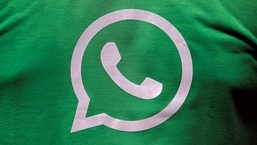J&J’s single-shot vaccine has been noted for its convenience compared to two-shot vaccines, especially in remote areas and in populations like the homeless who may be difficult to give repeat immunizations.
Johnson & Johnson’s Covid-19 vaccine was limited to use only in adults for whom other shots aren’t appropriate after an investigation of rare and potentially deadly clotting disorder that occurs in some recipients.
The U.S. Food and Drug Administration limited the use of the vaccine to people 18 and older for whom other shots aren’t accessible or clinically appropriate, and those who would otherwise not get immunized against the virus. J&J’s single-shot vaccine has been noted for its convenience compared to two-shot vaccines, especially in remote areas and in populations like the homeless who may be difficult to give repeat immunizations.
About 18.7 million doses of J&J’s vaccine have been administered to U.S. adults, according to the Centers for Disease Control and Prevention. Almost 31 million doses have been delivered to vaccine sites, suggesting a surplus of unused shots.
The agency decided to limit the authorized use of J&J’s shot after conducting an investigation and analysis of reported cases of blood clots in combination with low levels of blood platelets, known as thrombosis with thrombocytopenia syndrome, that occurred one to two weeks following administration of the shot.
The findings of that analysis “warrants limiting the authorized use of the vaccine,” the FDA said in the statement.
Peter Marks, the director of the FDA’s Center for Biologics Evaluation and Research, said the J&J coronavirus vaccine still has a role to play in the U.S. pandemic response and across the globe.
“Today’s action demonstrates the robustness of our safety surveillance systems and our commitment to ensuring that science and data guide our decisions,” Marks said, noting that the agency has closely monitored the J&J shot and cases of TTS, and will continue to evaluate it.
-

Nude video latest to turn Republicans in US against one of their own
A grainy 28-second video showing a naked young man gyrating against someone in bed amid squeals and laughter was the latest in a string of episodes that has turned Republicans against one of their own: the brash U.S. Representative Madison Cawthorn of North Carolina. It followed other episodes that have led powerful Republicans such as the top Republican in the House of Representatives, Kevin McCarthy, to break with him.
-
‘How did we catch it?’: Spread of Covid baffles locked-down Shanghai residents
Veronica thought she did everything right by sticking to all of the COVID-19 lockdown rules in the Chinese city of Shanghai. When curbs were relaxed slightly in mid-April, letting residents walk about within their compounds, Veronica and her neighbours all wore masks. Her building was declared “sealed”. Everyone else was ordered back indoors for another 14 days. The number of residents at a given address varied from a handful to hundreds.
-
Ukraine has enough grain stocks to feed population, says minister
Ukraine has large enough grain stocks in territory it still controls to feed the population in these areas, and has enough fuel to meet farmers’ daily needs, deputy agriculture minister Taras Vysotskiy said on Thursday. Ukraine said last month Russian forces had stolen “several hundred thousand tonnes” of grain in the areas of Ukraine they have occupied since the invasion began on Feb. 24 and this could affect the food security of local population.
-

Israel says Putin apologised for foreign minister’s Hitler remarks
Israeli Prime Minister Naftali Bennett said on Thursday that Russian President Vladimir Putin had apologised for his foreign minister’s comments claiming Adolf Hitler had Jewish origins. Bennett, after a call with the Russian leader, said he accepted the apology and thanked Putin for clarifying his position. Bennett also said he asked Putin to consider allowing the evacuation of the besieged Azovstal steel works in the Ukrainian port of Mariupol.
-
Former WhatsApp executive says he regrets Facebook’s $22 bn acquisition deal
Former business officer of WhatsApp Neeraj Arora has expressed regret over the mammoth deal negotiated between the instant messaging platform and the social media giant Meta, then known as Facebook, in 2014. Facebook’s acquisition of WhatsApp in 2014 was one of the biggest deals in the technology industry – larger than any of Meta’s peers like Google, Microsoft or Apple ever did.




